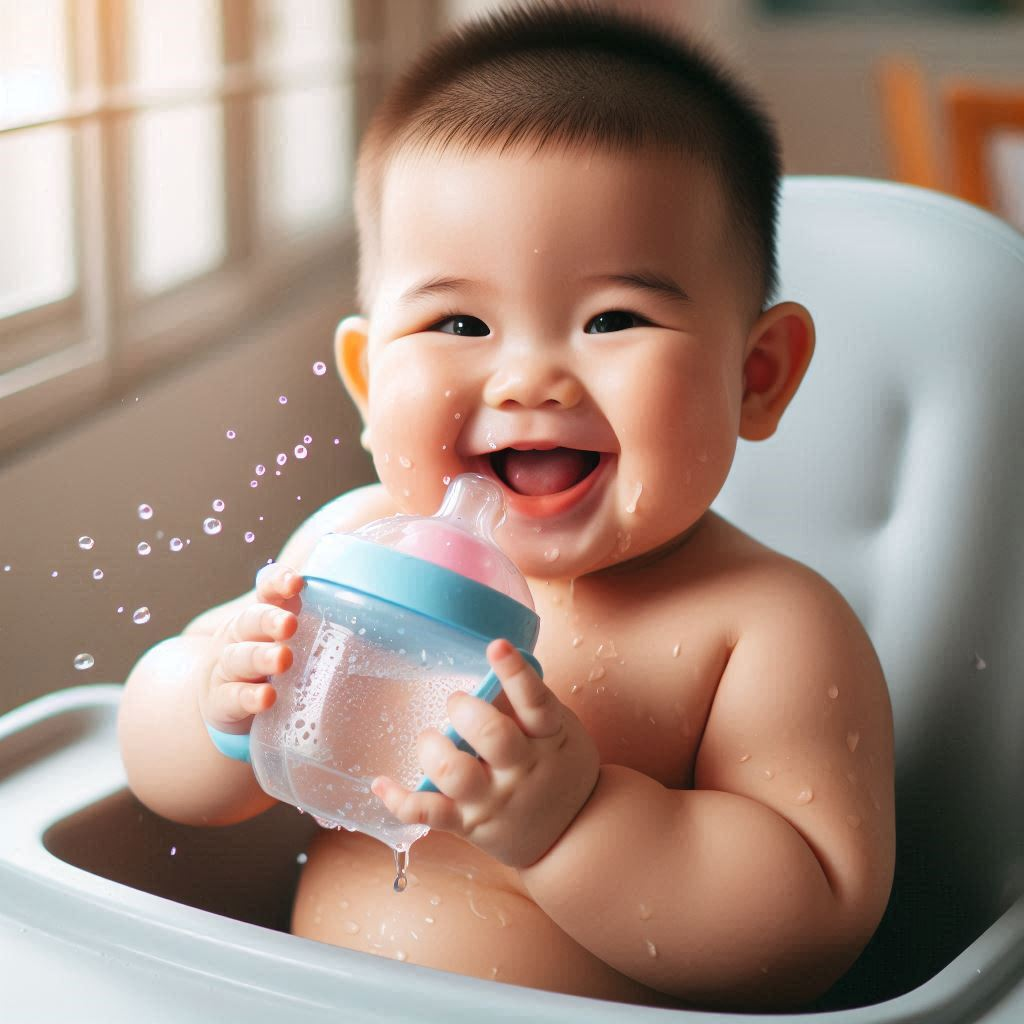Can You Give Water to a 5 Months Old Baby?
As a new parent, you’re probably wondering about all sorts of things when it comes to your baby’s health and nutrition. One question that often pops up is whether it’s okay to give water to a 5-month-old baby. Let’s dive into this important topic and get you the answers you need.
Quick Answer
No, it’s not recommended to give water to a 5-month-old baby. Babies under 6 months old get all the hydration they need from breast milk or formula.
My Experience as a New Mom
I remember when my little Emma was about 5 months old. It was a scorching summer day, and I was sipping on a cold glass of water. Emma’s eyes followed my every move, and she seemed so interested in what I was drinking. For a moment, I thought, “Maybe she’s thirsty too?” But thankfully, I remembered what our pediatrician had told us during our last check-up. It stuck with me because it was so different from what I expected.
“Mrs. Johnson,” Dr. Patel had said, “I know it might seem like your baby needs water, especially on hot days. But Emma’s getting all the hydration she needs from your breast milk. Her little body isn’t ready for water just yet.”
That advice probably saved us from some potential health issues. So, let’s break down why water isn’t necessary for babies under 6 months and what you should do instead.
Why Babies Under 6 Months Don’t Need Water
Breast Milk and Formula: Nature’s Perfect Drinks
You might be surprised to learn that breast milk is about 87% water. Yep, you read that right! It’s already perfectly designed to keep your baby hydrated. Formula is also created to mimic breast milk’s hydrating properties. So, when you’re feeding your baby, you’re already giving them the perfect drink.
Tiny Tummies and Big Risks
At 5 months, your baby’s tummy is still pretty small. Filling it up with water means less room for the nutrient-rich breast milk or formula they need to grow. It’s like filling up on breadsticks before the main course – not the best idea!
The Danger of Water Intoxication
This might sound scary, and it kind of is. Babies’ kidneys are still developing and can’t handle too much water. Giving them water can lead to a serious condition called water intoxication. It happens when the balance of electrolytes in the body gets thrown off.
Signs of Water Intoxication
- Drowsiness
- Irritability
- Swelling of the face
- Seizures (in severe cases)
When Can You Start Giving Water?
The 6-Month Milestone
Around 6 months is usually when babies start eating solid foods. This is also when it’s okay to introduce small amounts of water. But remember, breast milk or formula should still be the main drink until your baby is at least 12 months old.
How to Introduce Water
- Start small: Offer just a few sips at a time.
- Use a cup: Try an open cup or a sippy cup to help your baby learn drinking skills.
- Make it part of meals: Offer water with solid foods, not between feedings.
Keeping Your Baby Hydrated Without Water
Feed on Demand
The best way to keep your 5-month-old hydrated is to feed them whenever they show signs of hunger. This “on-demand” feeding ensures they’re getting exactly what they need, when they need it.
Recognize Hunger Cues
Babies are pretty good at letting us know when they’re hungry. Here are some signs to watch for:
- Smacking or licking lips
- Opening and closing mouth
- Sucking on hands, fingers, or clothing
- Turning head and opening mouth (rooting)
Hot Weather Tips
When it’s really hot out, you might worry about your baby getting dehydrated. Here’s what you can do:
- Feed more frequently
- Keep your baby in a cool, shaded area
- Dress them in light, breathable clothing
Signs Your Baby is Well-Hydrated
The Diaper Check
One of the easiest ways to tell if your baby is getting enough fluids is by checking their diapers. A well-hydrated baby should have:
- At least 6 wet diapers in 24 hours
- Urine that’s pale yellow (not dark or orange)
Other Hydration Indicators
Keep an eye out for these signs of good hydration:
- Moist lips and mouth
- Tears when crying
- Good skin elasticity (if you gently pinch the skin, it should spring back quickly)
What About Other Drinks?
Juice: A Big No-No
You might be tempted to give your 5-month-old some juice, thinking it’s healthy. But hold that thought! The American Academy of Pediatrics recommends no juice for babies under 12 months. Juice can:
- Fill up your baby’s tummy, leaving less room for nutritious food
- Cause tooth decay
- Lead to unhealthy weight gain
Other Beverages to Avoid
While we’re at it, here are some other drinks that are off-limits for babies under 6 months:
- Cow’s milk
- Plant-based milk (like almond or soy)
- Soft drinks
- Tea or coffee
When to Call the Doctor
While it’s rare for a breastfed or formula-fed baby to become dehydrated, it can happen. Call your pediatrician if you notice:
- Fewer wet diapers than usual
- Dark urine
- Dry mouth or lips
- Sunken soft spot on the head
- Excessive sleepiness or fussiness
- No tears when crying
The Bottom Line
So, can you give water to a 5-month-old baby? The short answer is no. Your baby’s getting all the hydration they need from breast milk or formula. Waiting until around 6 months to introduce water helps ensure your baby gets the nutrition they need and avoids potential health risks.
Remember, every baby is unique. If you have any concerns about your baby’s hydration or nutrition, don’t hesitate to reach out to your pediatrician. They’re there to help you navigate this exciting (and sometimes confusing) journey of parenthood.
Next Steps
As you approach the 6-month mark, start thinking about how you’ll introduce water and solid foods. Talk to your pediatrician about the best approach for your baby. And most importantly, enjoy this special time with your little one. Before you know it, they’ll be asking for their own water bottle!

Jessica Winter is a passionate parenting blogger with two years of experience guiding new and seasoned parents through the joys and challenges of raising babies. Her insightful posts blend personal anecdotes with expert advice to offer a warm and practical perspective on modern parenting.

